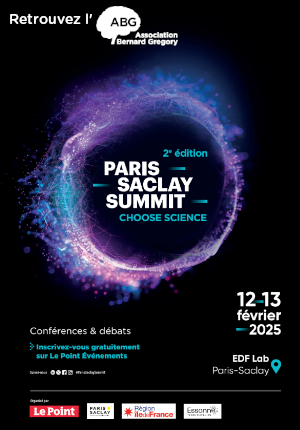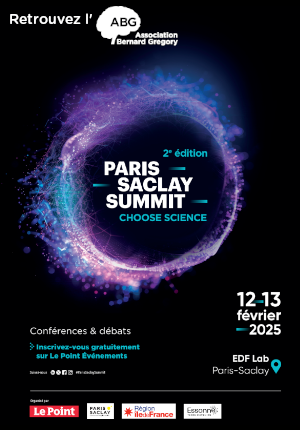Rôle du récepteur de l'ocytocine dans les neurones ocytocinergiques // Role of the oxytocin receptor in oxytocinergic neurons
|
ABG-128060
ADUM-59179 |
Thesis topic | |
| 2025-01-22 | Other public funding |
Université de Tours
TOURS - France
Rôle du récepteur de l'ocytocine dans les neurones ocytocinergiques // Role of the oxytocin receptor in oxytocinergic neurons
- Biology
ocytocine, comportement social, troubles du spectre autistique, Syndrome de l'X fragile
oxytocin, social behaviour, autism spectrum disorders, Fragile X syndrome
oxytocin, social behaviour, autism spectrum disorders, Fragile X syndrome
Topic description
Les déficits d'interaction sociale, tels que les troubles du spectre autistique (TSA), sont des troubles neurodéveloppementaux complexes durant toute la vie. À ce jour, aucun traitement pharmacologique agissant sur les symptômes sociaux des TSA n'existe. Les seules options thérapeutiques pour les TSA reposent sur des programmes d'intervention comportementale intensifs et coûteux dont les effets bénéfiques sont limités. L'ocytocine et son récepteur OTR sont des acteurs majeurs des comportements sociaux et ont un fort potentiel thérapeutique dans le traitement des déficits d'interaction sociale. Le récepteur OTR est exprimé dans des structures cérébrales, dont les neurones ocytocinergiques eux-mêmes. Dans ce projet, nous proposons i) de disséquer le rôle du récepteur de l'ocytocine dans les neurones ocytocinergiques, et ii) d'établir le cadre thérapeutique de l'administration exogène intranasale d'ocytocine dans un modèle murin d'autisme. Nous identifierons comment le récepteur de l'ocytocine module la sociabilité dans les neurones ocytocinergiques, et utiliserons l'administration d'ocytocine exogène dans un modèle murin bien établi de TSA et du syndrome de l'X fragile, les souris KO Fmr1. Dans l'ensemble, notre projet fournira de nouvelles informations essentielles sur la façon dont l'ocytocine module les signaux sociaux et l'activité cérébrale pour permettre les interactions sociales, et des leviers thérapeutiques dans le contexte des déficits de l'interaction sociale.
------------------------------------------------------------------------------------------------------------------------------------------------------------------------
------------------------------------------------------------------------------------------------------------------------------------------------------------------------
Social interaction deficits, such as autism spectrum disorders (ASD), are complex, lifelong neurodevelopmental disorders involving deficits. To date, no pharmacological treatment that improve social symptoms exists for ASD, and the only therapeutic options rely on intensive and costly behavioral intervention programs with limited beneficial effects. Oxytocin and its receptor OTR are key determinant players of social behaviors with therapeutic potential for social interaction deficits. OTR is expressed in specific brain structures, including oxytocinergic neurons. Here, we propose i) to dissect the role of oxytocin receptor in oxytocinergic neurons, and ii) establish a therapeutic framework of exogenous intranasal oxytocin administration in a mouse model of autism. We will identify how oxytocin receptor in oxytocinergic neurons modulates social interactions, and use administration of exogenous oxytocin in a well-established and mouse model of ASD and Fragile X syndrome, Fmr1 KO mice. Overall, our project will provide essential novel information on how oxytocin modulate social signals and brain activity to enable social interactions, providing therapeutic levers in the context of social interaction deficits.
------------------------------------------------------------------------------------------------------------------------------------------------------------------------
------------------------------------------------------------------------------------------------------------------------------------------------------------------------
Début de la thèse : 01/04/2025
------------------------------------------------------------------------------------------------------------------------------------------------------------------------
------------------------------------------------------------------------------------------------------------------------------------------------------------------------
Social interaction deficits, such as autism spectrum disorders (ASD), are complex, lifelong neurodevelopmental disorders involving deficits. To date, no pharmacological treatment that improve social symptoms exists for ASD, and the only therapeutic options rely on intensive and costly behavioral intervention programs with limited beneficial effects. Oxytocin and its receptor OTR are key determinant players of social behaviors with therapeutic potential for social interaction deficits. OTR is expressed in specific brain structures, including oxytocinergic neurons. Here, we propose i) to dissect the role of oxytocin receptor in oxytocinergic neurons, and ii) establish a therapeutic framework of exogenous intranasal oxytocin administration in a mouse model of autism. We will identify how oxytocin receptor in oxytocinergic neurons modulates social interactions, and use administration of exogenous oxytocin in a well-established and mouse model of ASD and Fragile X syndrome, Fmr1 KO mice. Overall, our project will provide essential novel information on how oxytocin modulate social signals and brain activity to enable social interactions, providing therapeutic levers in the context of social interaction deficits.
------------------------------------------------------------------------------------------------------------------------------------------------------------------------
------------------------------------------------------------------------------------------------------------------------------------------------------------------------
Début de la thèse : 01/04/2025
Funding category
Other public funding
Funding further details
ANR Financement d'Agences de financement de la recherche
Presentation of host institution and host laboratory
Université de Tours
Institution awarding doctoral degree
Université de Tours
Graduate school
549 Santé, Sciences Biologiques et Chimie du Vivant - SSBCV
Candidate's profile
L(e/a) candidat(e) devra être titulaire d'un Master recherche en neurosciences ou neuro-endocrinologie. Le poste nécessite de solides connaissances en neurosciences, en particulier en neuro-endocrinologie, de très bonnes aptitudes de communication orale et écrite (anglais nécessaire) pour présenter ces travaux dans des congrès nationaux et internationaux et rédiger des articles dans des revues scientifiques. Nous recherchons une personne dynamique qui saura s'impliquer dans son projet et proposer des nouvelles idées, curieux, avec un esprit critique, démontrant des capacités à travailler de façon autonome et une forte motivation globale, et voulant développer ses compétences. De plus, l(e/a) candidat(e) devra être apte à travailler en équipe et en collaboration.
Les candidatures devront inclure un CV détaillé (cursus universitaire, formation, compétences, stages, deux références), une lettre de motivation d'une page, un résumé d'une page du mémoire de Master et des notes obtenues du master.
The applicant must have a Master degree (or equivalent) in Neuroscience or neuro-endocrinology. Strong knowledge in Neurosciences or neuro-endocrinology is required, with excellent oral and writing skills in English (mandatory) to present in national and international meetings and to write research articles in scientific journals. We are seeking for a dynamic person who will be able to fully commit in his PhD project, propose new ideas, be curious, with a critical mind, display autonomy and would be motivated and willing to learn new skills. Furthermore, the candidate needs to demonstrate his skills to work in a team and in collaboration. To apply for the position, please provide a detailed resume (university, formations, skills, internships, the name of two references), a motivation letter (one page), and a summary (one page) and grades of the Master.
The applicant must have a Master degree (or equivalent) in Neuroscience or neuro-endocrinology. Strong knowledge in Neurosciences or neuro-endocrinology is required, with excellent oral and writing skills in English (mandatory) to present in national and international meetings and to write research articles in scientific journals. We are seeking for a dynamic person who will be able to fully commit in his PhD project, propose new ideas, be curious, with a critical mind, display autonomy and would be motivated and willing to learn new skills. Furthermore, the candidate needs to demonstrate his skills to work in a team and in collaboration. To apply for the position, please provide a detailed resume (university, formations, skills, internships, the name of two references), a motivation letter (one page), and a summary (one page) and grades of the Master.
2025-02-15
Apply
Close
Vous avez déjà un compte ?
Nouvel utilisateur ?
More information about ABG?
Get ABG’s monthly newsletters including news, job offers, grants & fellowships and a selection of relevant events…
Discover our members
 Tecknowmetrix
Tecknowmetrix  ADEME
ADEME  ONERA - The French Aerospace Lab
ONERA - The French Aerospace Lab  Institut de Radioprotection et de Sureté Nucléaire - IRSN - Siège
Institut de Radioprotection et de Sureté Nucléaire - IRSN - Siège  Nokia Bell Labs France
Nokia Bell Labs France  CESI
CESI  Généthon
Généthon  MabDesign
MabDesign  Laboratoire National de Métrologie et d'Essais - LNE
Laboratoire National de Métrologie et d'Essais - LNE  SUEZ
SUEZ  Groupe AFNOR - Association française de normalisation
Groupe AFNOR - Association française de normalisation  ANRT
ANRT  Institut Sup'biotech de Paris
Institut Sup'biotech de Paris  Aérocentre, Pôle d'excellence régional
Aérocentre, Pôle d'excellence régional  MabDesign
MabDesign  TotalEnergies
TotalEnergies  CASDEN
CASDEN  PhDOOC
PhDOOC  Ifremer
Ifremer






